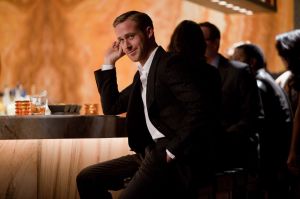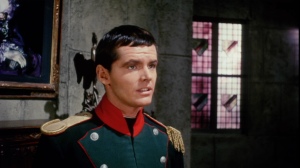Rating: 2.5/5
“You’re telling me that the North Pole is now somewhere in Wisconsin?”
Having already destroyed most of the northern hemisphere in The Day After Tomorrow, writer-director Roland Emmerich set his sights on a disaster movie on an even bigger scale: the result is 2012, a film that, unfortunately, attempts to tell a story simply too ambitious and vast to work. Cashing in on the interest in Mayan prophecies, which foretold the end of the world (a prediction that a surprising number of people really believed), and twisting genuine science to provide a “plausible” explanation – an abundance of neutrinos that cause the Earth’s core to heat up as a result of extreme solar flares, or something – Emmerich delivers a film that contains all the classic elements of a good disaster movie, but ultimately fails to truly excite.
The plot is standard fare, focused predominantly on one man’s attempt to keep his family safe. Nice-but-bland Jackson Curtis (John Cusack) features to provide the audience with an everyman to relate to; recently divorced, his attempts to reconnect with his children (incomplete family unit, check! Chance for father to redeem himself in the eyes of his son, check!) conveniently lead him to Yellowstone National Park, where the first of many coincidences allow him to realise what the government has neglected to publicise (nasty officials, check!). Soon he and his family are mere seconds away from death, as they repeatedly find themselves situated precisely where the newest major catastrophe is occurring (wrong place, wrong time, check!) and have to quickly flee (ridiculous displays of heroism, check!). Oh, and yes, there is a dog involved and yes, it survives (cute animal, check!).
Emmerich presents a rather cynical view of the government – not only have they chosen to keep the imminent end of times a secret, they’re selling off spaces in the specially designed Arks to anyone with a spare billion dollars. Just compare this to the far more intelligent Deep Impact, one of the more underrated disaster movies of the last fifteen years. While there are brief scenes of various people from around the world (although not a single mention of Australia, for some reason), as usual the American government takes the lead, with the rest of the G8 trusting Uncle Sam to save the day. As is to be expected, the US president (Danny Glover) is an inspiration (heroic US president, check!) – like in The Day After Tomorrow, it’s the second in command (here played by Oliver Platt) who’s the “villain” of the film. It’s all rather generic and unsurprising, with an unpleasantly bitter edge – Jackson might get the chance to reunite his family, but not everyone’s as lucky. The death count is ridiculously high; arguably the largest in any film that doesn’t feature entire planets being completely obliterated, so inevitably at least some of the people we follow throughout the film aren’t going to make it, but some of the ways in which it happens are just plain mean.
Of course, in any disaster movie the plot serves more as a vehicle for the set pieces. Emmerich packs these into the film’s lengthy running time, and it plays like a disaster movie best of: earthquakes, volcanoes, airplane crashes, sinking cruise ships and tidal waves all feature, the most impressive of which occur fairly early. The first major catastrophe – a massive earthquake that leads to half of California being tipped into the ocean – is by far the largest on screen event, although the eruption of Yellowstone is the most exciting, largely because of Woody Harrelson’s conspiracy-theorist-wacko’s commentary. These set pieces are at the centre of the film’s appeal, and they are impressively bonkers, but somehow underwhelming: perhaps they are simply too catastrophic to really believe. This vast scale is not helped by CGI that looks disappointingly unconvincing – it’s not terrible, but there is an obvious flatness to the whole thing.
More problematically, around the hour-forty mark most of the world has been destroyed, yet Emmerich continues for almost another hour, dumping the Curtis family in Tibet where they almost bring about the deaths of some hundred thousand people because they dropped a hose pipe into some hydraulics. In an attempt to bring some last minute action to the film, the survival of all these people relies on, you guessed it, Jackson (everyman saves the world, check!) – it’s as stupid and illogical as Jeff Goldblum’s plan in Independence Day, and monumentally underwhelming after the carnage that’s preceded it. Disappointingly 2012 significantly starts to droop in the final hour; perhaps yet another indication that Emmerich has seriously bitten off more than he could chew. 2012 is evidence that bigger is not always better – it’s doubtful that any disaster movie will ever top it in terms of destruction and ambition, but even now there are plenty others that are more entertaining and impressive.







